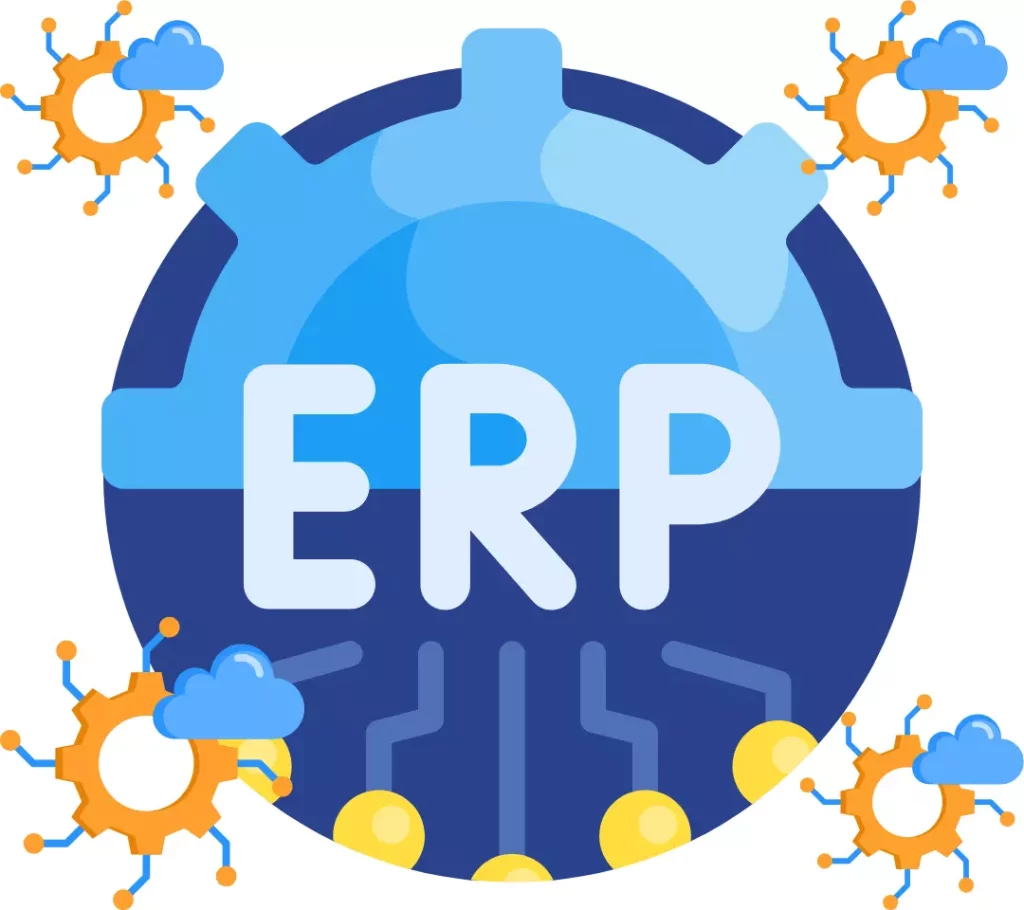The Enterprise Resource Planning (ERP) software integrates with a business’s daily operations, enabling streamlined processes. Although a company may currently use an on-premises ERP system, it cannot benefit from cloud technology. To help with this, we will present a detailed 6-step plan for migrating an ERP system to the cloud.

1. Analyze your current ERP system
Evaluating your current system is essential before migrating your cloud-based ERP systems to the cloud. Take note of any customizations, add-ons, integrations, and specific features your current system provides. Include this information in your analysis for an efficient and successful migration.
2. Cloud-readiness assessment
Understanding how each feature of your current ERP system will function in the cloud is necessary for a successful transition. A cloud-readiness assessment will help you identify if you need to fill any gaps before the migration.
3. Plan your migration
Once you’ve pinpointed any necessary improvements, begin planning the migration procedure. This involves producing a comprehensive plan for the entire process, incorporating checklists, timelines, and tasks. A complete migration plan for your ERP system should be in place long before you migrate your data. This will help you identify the necessary resources, dependencies, and timeline for the migration. IT professionals also recommend a backup plan if any complications occur during migration.
4. Choose a cloud vendor
After assessing your existing ERP system, you must select a cloud vendor to host it. Choosing a cloud vendor that can meet your business requirements and has experience hosting ERP systems is key to a successful migration.
5. Migrate Your Data
The next step is to migrate your data after completing the setup. This step is crucial when moving your ERP system to the cloud. Accurate and secure data migration is essential to prevent any loss or leakage of data. Your cloud vendor should provide you with a framework for migrating the data.
6. Test your new ERP system
After transferring the data, test your new ERP system for proper functionality. Conduct thorough testing on all critical business processes, including procurement, inventory management, accounts payable and receivable, and payroll. As a result of comprehensive testing, everything will function correctly.
4 Top Benefits of Cloud-based ERP Systems for Your Business
Here are some of the key benefits of running an Enterprise Resource Planning (ERP) System:
1. Cost-effectiveness: Compared to traditional ERP systems, cloud-based ones are more cost-effective in many ways. For example, you don’t have to buy and maintain expensive hardware or hire IT staff to handle them. Instead, the provider takes care of maintenance and upgrades. Moreover, cloud-based systems are usually subscription-based. This means they provide the flexibility you need to adjust your plan to your business needs.
2. Scalability: Another benefit of ERP systems is their scalability. The physical hardware that ERP systems run on can limit them, which can be a constraint for businesses that need to grow quickly. A system that operates on the cloud allows for easy resource adjustments based on the needs of your business, resulting in quick and effective scaling. A seasonal business can benefit from this, and businesses with sudden growth spurts.
3. Flexibility: ERP systems offer greater flexibility than on-premises solutions. A traditional system restricts you from working from only one location, where the software and data reside on a specific server. For businesses with mobile workers or remote employees, cloud-based systems provide access to data and applications anywhere with an internet connection.
4. Increased security: ERP systems offer increased protection over traditional, on-premises solutions. You can secure your data by saving it on servers with redundancy and disaster recovery capabilities that are based on the cloud. This reduces the chance of experiencing downtime or losing data. In addition, many cloud-based providers offer additional measures of security. Tor instance, they may provide encryption and multi-factor authentication to enhance the protection of your data.
Conclusion: Reasons to Migrate to ERP System and its Benefits
To migrate to the cloud seamlessly, you must assess your current ERP system, pick a cloud provider, strategize the migration process, transfer your data, and perform tests on the new ERP system.
Cloud-oriented ERP solutions have multiple benefits over typical on-premises systems, such as affordability, scalability, adaptability, and boosted security. By leveraging these benefits, your business can thrive and progress in today’s immediate environment.
Written by: RACHEAL



